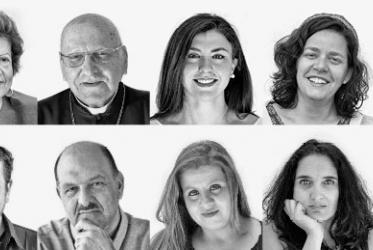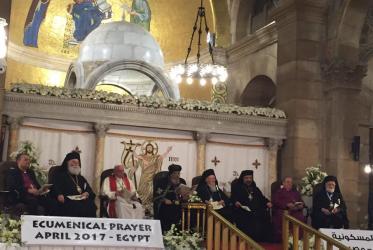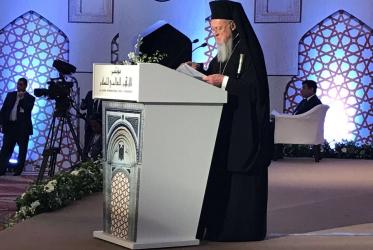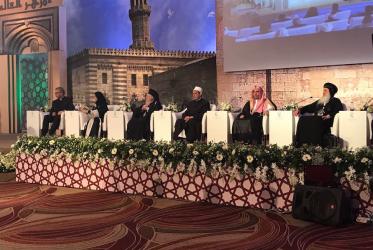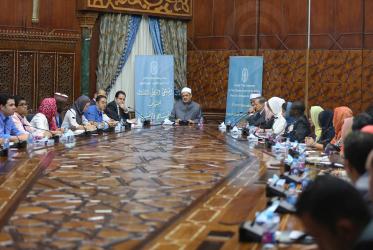Displaying 81 - 100 of 156
20 June 2017
Women in development create space for hope in Egypt
15 June 2017
‘Love is stronger than hate’
02 May 2017
Historic ecumenical prayer in Egypt for peace and unity
30 April 2017
WCC gravely concerned over Israel’s travel ban
09 March 2017
WCC general secretary speaks on religion and discrimination
14 February 2017
Tveit offers input at religion and development meeting
03 October 2016
Religious leaders of many faiths talk peace in Assisi
21 September 2016
WCC general secretary reflects on peace in Palestine and Israel
20 September 2016
Seminar will address youth engagement, religion and violence
19 August 2016
